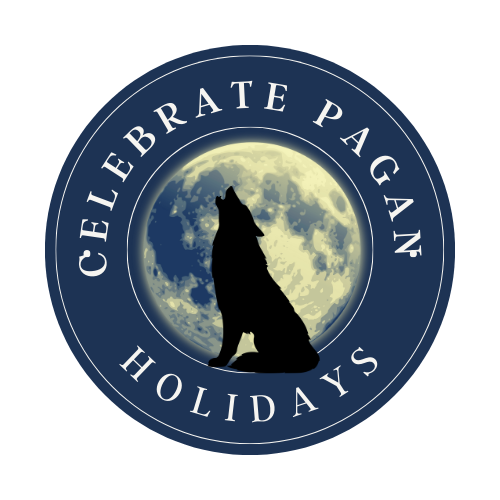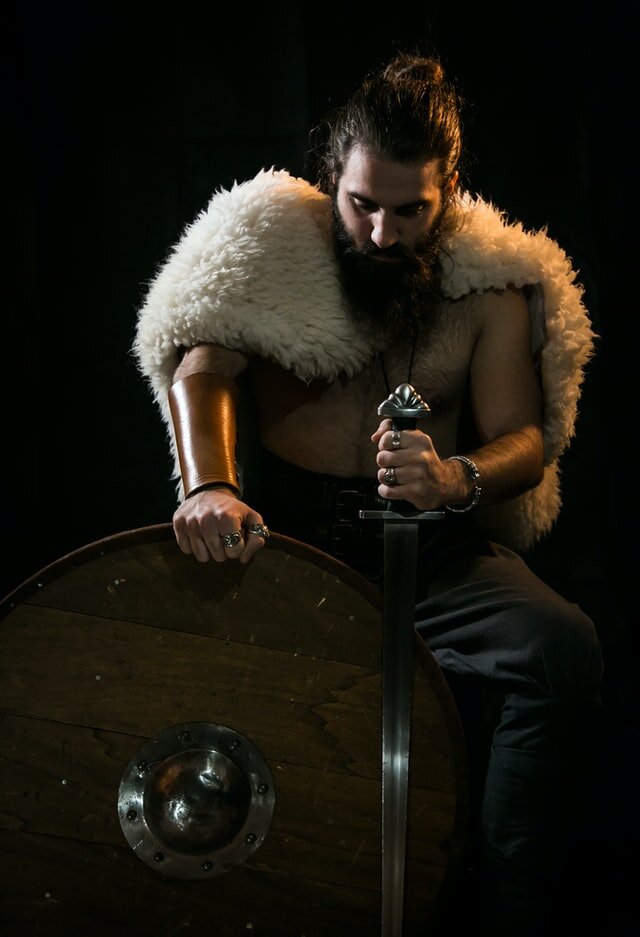By Goði Anlengðarclan
What is Norse Paganism? A question that many have asked, from believer to scholar and all of them have a slightly different answer.
In short, it is modern people adopting the religious practices of ancient Scandinavia and its European territories.
In this article, I will expand upon the above and attempt to best explain what it is to me.
My Journey
In order to best understand my view and what It means to me, you need to know my journey. I'll keep it short, but it was one of pain, loss, and longing for a sense of belonging.
As a young man, I was inducted into a church that dominated British culture through school and after school organizations. By the age of 10 I had become quite unwelcome within it, upon being caught underlining my bible with things I was questioning.
This began a long journey of faith hopping, and seeking something greater than myself, but that is not relevant here. At the age of 20 I discovered the old religion of my country and my family.
Allow me to preface this by saying just because I have a familial connection, it is not a requirement and anyone who tells you it is, lacks the honor that is intrinsic to the faith.
Is Norse Paganism Accepting?
Yes, Norse Paganism is acceptance, it is welcoming, it is that warm feeling you have In your heart when you can take a breath at the end of a long journey. At least that is what it is to me.
A perfect example to support my above claim, I am known by many names in the community. Justen, priest, Goði (Wiseman), brother, teacher, and trusted friend.
Yet, I am a Neurodiverse, Bi-Sexual man. The latter being a reason many practitioners of a myriad of religious beliefs would condemn me to eternal suffering.
Please note that my words above are not used to condemn, and merely talk of the experiences of those I have spoken with. I know that it is only a small minority of each faith that make others feel unwelcome for how they were born.
(Editors note: So many of us can relate to this journey! You can read our article on Pagan Challenges to learn more)
Is the Modern Norse Religion Diverse?
Within the Norse faith, you will find a myriad of identities, from across the gender, racial, national, and sexual identity spectrums. It would be fair to say, another thing that Norse paganism is, is diverse.
There are some sects of the faith that will try to tell you otherwise, and they are the only ones we do not accept. In fact, many members within the faith, myself included, have found that they are finally in a place that has allowed them to explore their identity safely and in an accepting place.
I do not make any claims to Norse Pagans being perfect or having all the answers, the very definition of faith is putting spiritual conviction above proof. That said, we do our best to be true to ourselves, our families, and our Gods.
Read more in our article 11 CORE NORDIC RELIGION PRINCIPAL BELIEFS.
What is the Norse Hugr?
This brings us to the next thing that Norse paganism is. It is an honor code, not just a way of believing, but a way of living.
It is not the Gods who judge our worthiness for a pleasant rest in Hel. For the most part, that falls to us to judge our own honor, something that is backed up by our Hugr (Hoogr).
I will try to offer a little more information on a person's Hugr. While a very deep subject, a surface explanation would be a metaphysical entity that follows us through life, its tie to us becoming stronger or weaker based on our honor.
An individual's Hugr is passed down from our ancestors, the only way to not have one is if, after your birth, your family commits any 1 of 3 acts, in which case your Hugr will await the next generation.
So what are these 3 things that will cause our Hugr to abandon us, regardless of what we feel about our actions? The first is harming a child, the second is breaking an Oath, and the third is unjustified killing.
Outside this, our actions are left for us to judge with the belief that even if outwardly an individual seems not to see the negative aspects of their actions, internally their unspoken guilt will poison their Hugr.
Photo by Gioele Fazzeri
What Is Our Afterlife?
Nastronð
So, what do Norse Pagans believe happens after we die? We have, traditionally speaking, 4 afterlives. The first, akin to Damnation, is the place of the honorless, Nastronð. A place where those who will serve Loki, either by choice or from loss of their Hugr, in Ragnarok.
Hel
The second, we call Hel. In the 17th century, this was made into an unpleasant place, but the reality is that it was described as a continuation of life for all those who die with their Hugr intact but not in battle. It is not particularly unpleasant at all, after all, Oðin's son Baldr dwells there as he did not die in battle.
Ragnarok and Valhol
The third and fourth afterlives are those for the individuals selected by Oðin or Freyja, to serve them in Ragnarok. Freyja, having the first choice, picks skilled soldiers such as medics and tacticians. Oðin then picks a number of strong brutes for Valhol to serve in his Einherjar similar to shock troops. There is a lot more to the Norse afterlife, but that's a story for another time.
How Do We View The Gods?
Now seems like an appropriate time to go into an overview of what traditionalist Norse Pagans believe in terms of our connection to the Gods.
First and maybe most importantly, our Gods are not omnipotent. They do not journey to a spirit realm and if they wish to visit or speak with us, they must do it in person. That is not to say we do not speak to them, but often this is for our comfort, and who knows, maybe Heimdallr passes on a message or two for us.
Ultimately Traditionalists believe that Æsir and Vanir gods do not really care about humanity, except from Thor. More often we seek our ancestors through prayer.
That said, this is a very deep and multifaceted subject that cannot be fully explored in a simple introduction.
Personal Growth
Finally, and for me most importantly, Norse paganism is about questioning everything to improve one's self. Well, for some of us it is.
Something I hope I have outlined clearly is that very rarely do two pagans walk the same path. Some of us walk similar paths and form small communities known as Kindreds or Clans, but even individuals who share a clan do not always share matching ideologies.
A Bit of History
Firstly I would like to look at the word Norse. This word is, in fact, the English word for Norsk which translates into English as Norwegian.
At some point in the 17th century, a group of Dutch monks, assuming that Scandinavia was a single culture and faith during the 'Viking' era, labeled them all as Norse. What they actually called themselves varies dramatically.
As you read through this introductory piece, you may have seen the use of some Norse lettering. To aid you in reading the words that they were used, I will explain them here. The first is Æ and is said somewhat like the noise you make when the dentist says 'Say Ah', the second is ð, which should be read similar to Th. So Oðin becomes Oh Thin.
Take Away
In conclusion, to me, Norse paganism is a path of inclusion, self-discovery, honor, and acceptance. It is something that always encourages learning and exploration of both self and faith. There are many more angles to explore including its poetic nature, the confusion that that has caused, to name but one of those avenues.
Fundamentally, Norse Paganism is a path that teaches all that is, must come to an end, and that that is not something we should fear. After all, it is the fickle and fleeting nature of existence that makes it so precious.
May the trees on your path always bear fruit.
Guest Author,Goði Anlengðarclan. , a devoted Norrøn pagan for over ten years, and dedicated teacher of the traditionalist ways of the Ancient Scandinavian Religion."






So, you want to become a Norse pagan? That's great! In general, pagan religions don’t ask you to convert, proselytize, or profess allegiance to a single God.
Norse paganism is open to anyone who believes in their deities and practices. There is a growing interest in Nordic religions. In fact, the old Norse religion is going through a major revival.